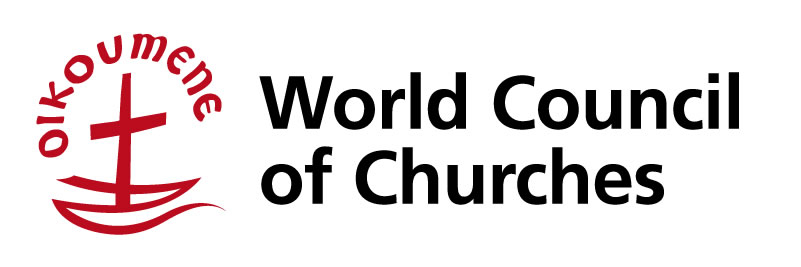WCC NEWS: “Your life is in peace when you collect the olives”
 Forty-year-old Shireen Elayan lives on the family farm outside Bethlehem; the family has owned the farm for generations.
Forty-year-old Shireen Elayan lives on the family farm outside Bethlehem; the family has owned the farm for generations.
She describes the old olive trees planted by her great-grandfather and the almost spiritual relationship many Palestinians feel for their olive trees. “We have a lot of memories, beautiful memories of the harvest time from our childhood,” she says. “Now we take all the children to the land to teach them everything we know about harvesting, making them part of our traditions.”
An intensive period of harvesting olives is currently taking place, starting early in the morning. “We work for ten hours, help each other, and share love and happiness,” says Elayan. “We make coffee, tea and our lunch over the open fire, the traditional way, far away from the modern world and all technology.”
She describes the olive picking process as hard work, but also something that gives her much joy, spiritual clarity and happiness. “You feel in love with the olive trees; you feel calm and forget everything else,” she says. “Your life is in peace when you collect the olives.”
For the family, living west of Bethlehem in the Hosan village, It is a special time of year to embrace togetherness.
Part of her family was forced to go to Jordan in 1967. Her father inherited the farm and surrounding land to take care of himself. It was a huge obligation and every year they share their harvest with the family in Jordan.
Last year they picked olives for 23 days, with help from many international volunteers, including people from the World Council of Churches Ecumenical Accompaniment Programme in Palestine and Israel. But because of the COVID-19 pandemic, there is no international presence this year.
Elayan describes how she makes olive oil with the Palestinian herb zaatar, from a special family recipe. Last year she sold small bottles of their olive oil.
“It is very delicious and I would love to sell more if I could; we need more income for the family,” she says. “Now we sell some here in the area and some we send to our family in Jordan. With all the fees that we have to pay as Palestinians, the Palestinian olive oil gets too expensive to export. But it’s something I would love to do in the future.”
Elayan describes how she dreams of having a machine for picking olives in the future.
“But my father refused any machines,” she says. “ ‘The hand is much better, to touch the tree with love,’ he always used to say. We have a lot of ideas like that in Palestine,” she says, and smiles.
Elayan, who studied chemistry at university, is a chemist. But most of her time goes to running the farm. Besides olive trees, they have different fruit trees like figs, apples, apricots, and grapes.
“As Palestinians we see the olive trees as our favorite tree,” she says. “I think it is because it’s such a strong tree. They are like us Palestinians. Some of our olive trees are 150 years old. The climate in my region is very good for the olive trees. My grandfather and father died, but I’m still alive, picking olives from trees that my great grandfather planted. That feels very special.”
Today their land is in both Area B, jointly administered by the Palestinian Authority and Israel, and Area C, which is controlled by Israel. Their life is far from easy, like for most Palestinians. Living under occupation, and close to a settlement means a lot of stress, fear, and uncertainty.
“The settlers have burned our land five times,” she says. “We have lost 150 olive trees, beside the settlement. One year they put chemicals on the trees, and there was no harvest that year. But most of the trees survived, even our oldest tree.”
Fear of settlers
Elayan describes how she tries to keep her hope alive for peace and justice in the future—to be able to live a normal life, for her nephews to grow up with a better future.
“The day before yesterday five young settlers attacked us and threw stones at us, when we were picking olives,” she says. “It was frightening, especially for the children who started crying, feeling very afraid. Yesterday six other settlers tried to steal our harvest. It makes me very sad.”
Living very close to a settlement often means problems for Palestinians. Almost 3,500 housing units and public buildings in settlements have been built on Palestinian private land. Elayan describes how she is afraid of being attacked by settlers. It is also hard for her to reach the land in Area C, which is controlled by Israel. As a Palestinian she is forbidden to use the gate in the fence that divides her family’s land, so she has to go around the settlement on a big road, to reach it. The settlers have the key to the gate and she feels very vulnerable.
“Of course we are afraid; these people have weapons, and can do anything towards us,” she says. “But we also feel humiliated. It’s been our land since generations, but we need to show ID and the right papers to reach it.”
Elayan tries to have faith and believe things will be better. But she wants to make her voice heard. She feels, as a Palestinian, very powerless.
“Not even the soldiers or the police can protect us,” she says. “Instead we are constantly afraid of being attacked by settlers. We don’t need financial support. But we need the world to recognize us, our situation and take action towards justice,” she says.
